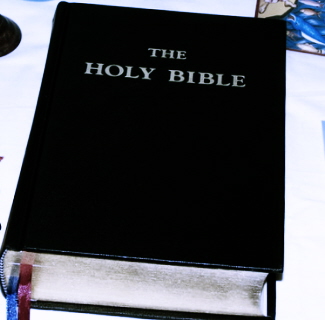Catholic-Protestant Differences
Comparison and Definition
The Catholic Church is an ancient Church of Christians united in Christ and under the authority of the bishop of Rome (Pope). "Protestant" is the name given to Christians from churches that broke off from the Catholic Church, starting with Martin Luther in the 16th century. There are hundreds and even thousands of groups that are considered "Protestant."
Catholic-Protestant differences are real, but there are also areas of similarity between the two types of Christianity. A lot of Catholics don't understand their Protestant friends, and vice-versa. They are all Christians, but they express their faith in different ways.
Catholic beliefs consist of what the Magisterium, or bishops in union with the Pope, teach. The Catholic Church is hierarchical, meaning the teachings come from the top and there is a clear structure of belief and authority. Protestant Churches, however, usually have no central authority, and are more loose in their structure. This is why it's almost impossible to speak of a united Protestant belief system. However, a quick glance at a few major points will reveal a few obvious differences.

First, there is a divide as to worship style. Catholic worship is more formal and liturgical, and prayers are written out for the congregation to say together. Protestant worship can be formal and liturgical too, but some Protestant forms of worship are more spontaneous and less organized. While Catholics celebrate the Church Year completely (observing a seasonal cycle from Advent to Ordinary Time, including the oft-occurring saint days), many Protestant Churches may only observe Christmas and Easter. However, some Protestant churches, such as Lutheran and Presbyterian, may observe most of the seasons and holy days
Second, the Catholic view of the Bible differs from Protestants. Catholics place equal weight on Scripture and Tradition, both of which are interpreted by the Pope and the Catholic bishops, called the Magisterium. The Protestant, however, usually bases his belief on the Bible alone, and interprets it himself or within his local community.
Third, Protestants typically believe that humanity is saved by faith in God alone. The Catholic will respond that salvation comes from God's grace, and both faith and works have a role. This difference is actually less than it seems since both groups believe in faith and works. The Catholic and Lutheran Churches have agreed that their disagreement on this topic was mainly an issue of wording.
Fourth, the Catholic revolves his life around the sacraments (rites that are signs of grace to the believer) as they are dispensed in the Church community. The Catholic Church has seven sacraments, including baptism and communion. The Protestant, on the other hand, typically holds a view of religion that is more individualistic, and more focused on intellectual belief, as opposed to receiving the physical sacraments.
Although in the past there have been major disagreements and even outright fighting (literally), in the last sixty years, both sides have tried to understand each other. This effort to get along better is called "ecumenism." This Protestant-Catholic dialogue has sought to foster agreement in core areas while also maintaining unique Catholic and Protestant distinctions.
Updated 9-13-2018